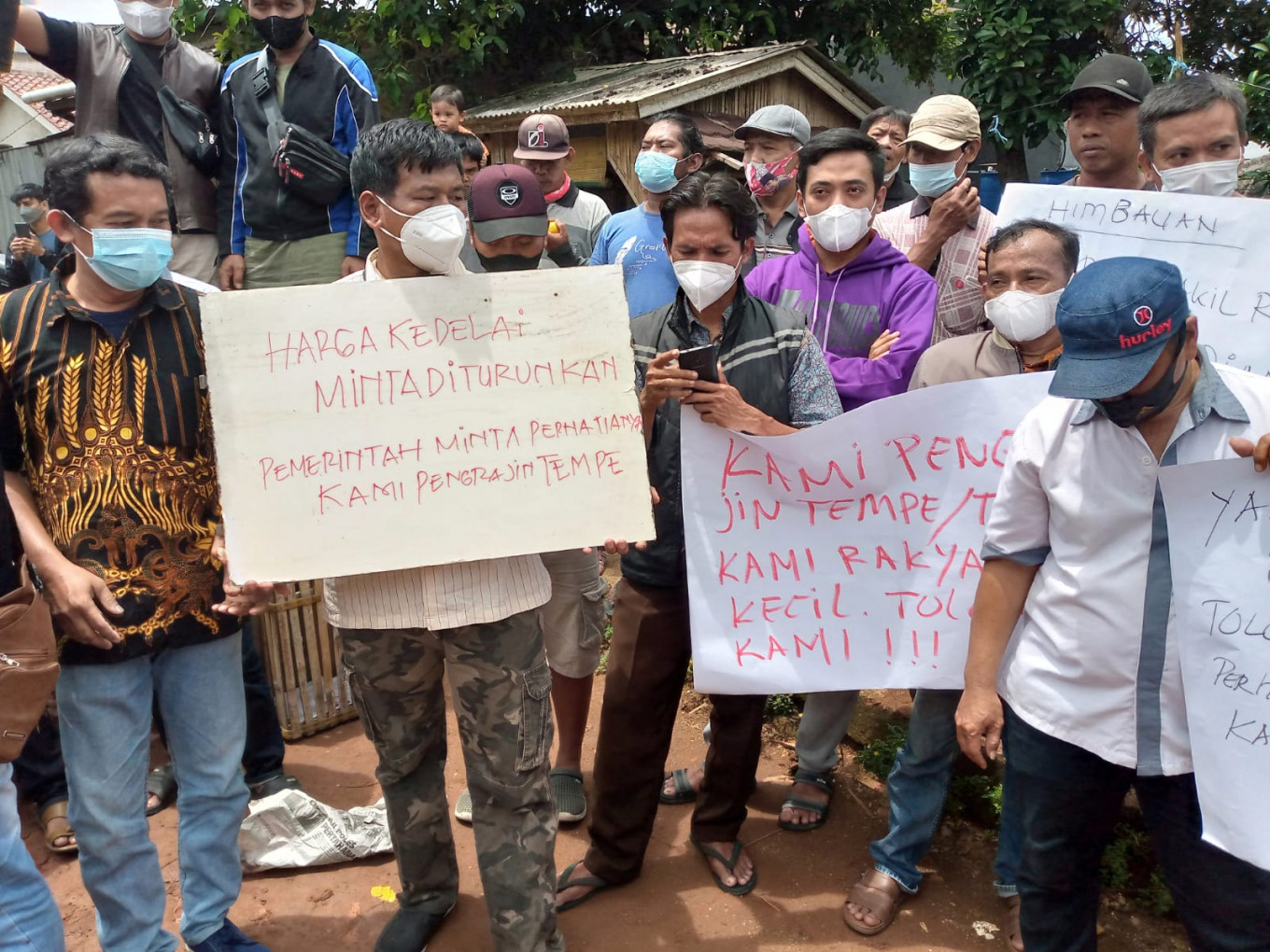Popular Reads
Top Results
Can't find what you're looking for?
View all search resultsPopular Reads
Top Results
Can't find what you're looking for?
View all search resultsReady for economic fallout?
The war in Ukraine may be far away, but Indonesia should still brace for its global economic consequences.
Change text size
Gift Premium Articles
to Anyone
T
he war in Ukraine may be far away, but Indonesia should still brace for its global economic fallout. Even before Russia’s invasion, we were experiencing hikes in the prices of basic food items, such as cooking oil, soybeans and meat.
World oil prices have been the first to soar in response to the war, but we can expect other commodities to follow in the coming weeks as the conflict grinds on and Western economic sanctions begin to bite, not only in Russia but also in global trade and financial systems.
Another global economic recession cannot be ruled out, this time not prompted by a pandemic or a breakdown of the financial system, but by a war, one whose end is nowhere in sight. Is Indonesia prepared?
In a speech last week that did not get the media coverage it deserved, President Joko “Jokowi” Widodo warned the nation to prepare for further price increases as a result of the war. He said the costs of shipping and logistics would rise on top of increases in commodity prices caused by supply and demand forces.
These forces will add to existing disruptions in global supply chains in the manufacturing sector.
The potential crisis will test the government’s food and energy security strategies. While self-sufficiency is not necessarily the objective of these strategies, Indonesia should at least be prepared with alternatives if its supplies are disrupted.
Unfortunately, we appear to have been paying only lip service to these food and energy security strategies. When it comes to energy, we still rely heavily on imported oil and coal, of which we have an abundance. We also have yet to seriously develop clean renewable energy resources, even though we talk about it all the time.
With regard to food, we are barely self-sufficient in rice, and we rely on imports of soybeans, wheat and meat. The typical government response to our country’s periodic shortages has been to bring in more imports rather than trying to increase domestic production.
Our agricultural policy has always been biased toward consumers and against farmers and producers. There is something very wrong with our food strategy if tempeh and noodles make up major portions of our diet while we import most of our soybeans and wheat.
The war will expose our vulnerabilities and our ability to cope with shortages.
We should not be buoyed by the high global prices of coal, palm oil and other commodities that we export. These bumps are likely to be temporary, as nations are trying to bolster their food and energy security by relying less on imports. If this is the case, we can expect such prices to fall and we will end up with unsold surplus.
It's good that the President is fully aware of what is coming our way as a result of the Russian invasion of Ukraine, but we are not so sure whether the government agencies responsible for food and energy security are on top of the situation. Given the scant publicity that Jokowi’s speech got, we are not sure either whether the nation is prepared to deal with another round of price increases and possibly another recession, this time perhaps more challenging than we have seen in the past.











